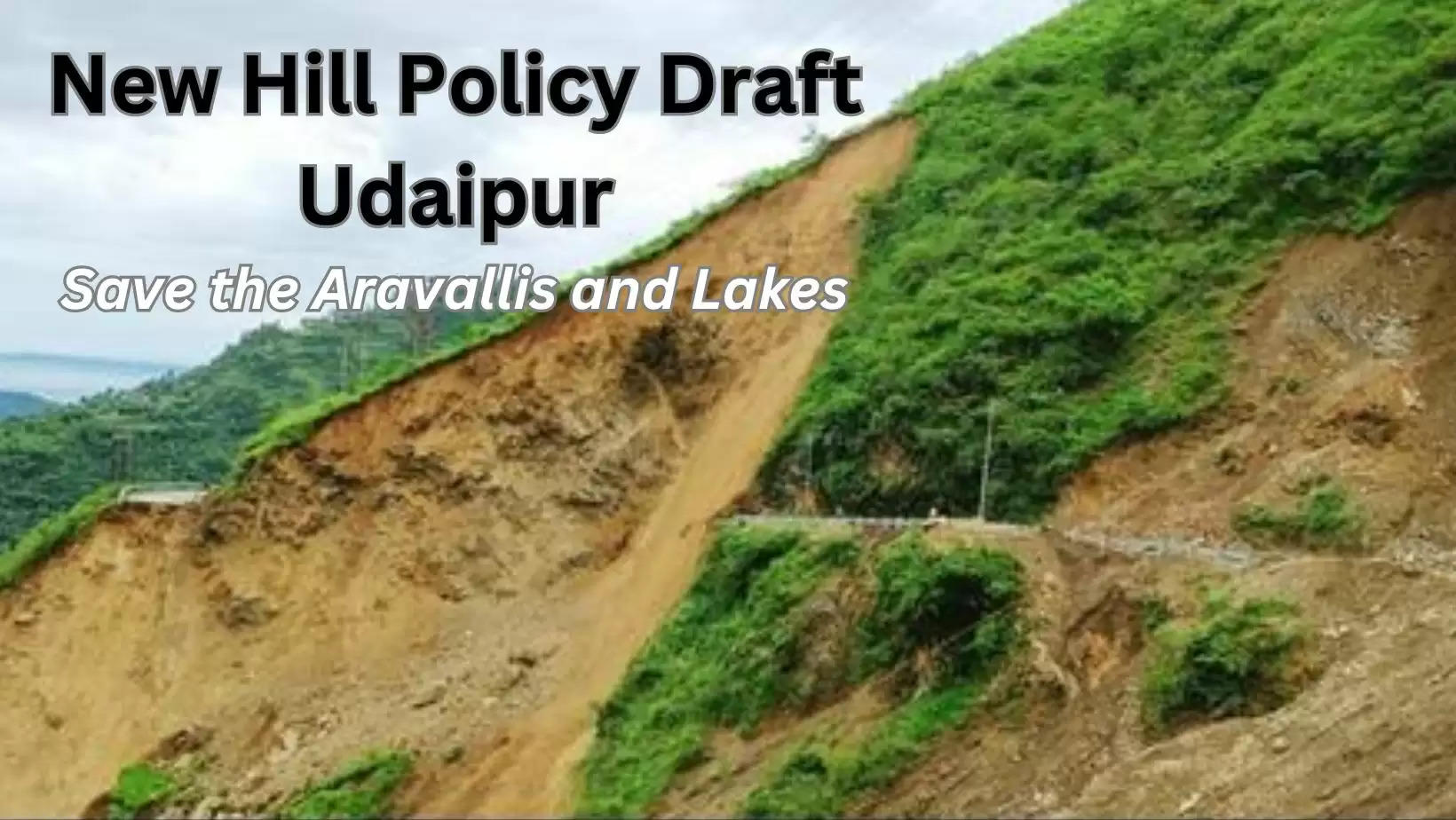Hill Policy Draft: Stakeholders Submit Feedback
Members of Udaipur’s hospitality industry and Udaipur Chamber of Commerce & Industry have given their suggestions on the Hill Policy draft to the State’s Principal Secretary seeking redressal and inclusion
Udaipur, December 24, 2024 - The Rajasthan Government had earlier this month released a draft of the Hill Policy and sought objections and suggestions from stakeholders by December 20, 2024. The policy, which incorporates strict guidelines as per directives from the High Court, has been drafted with the aim to protect the Aravali mountain range and its natural resources from excessive construction and ecological destruction.
Various stakeholders, including the hospitality industry, have submitted their feedback on the draft to the Principal Secretary, Department of UDH, Government of Rajasthan with their concerns and reservations.
UdaipurTimes was able to get hold the feedback submitted by some organisations like the Hotel Sansthan Dakshini Rajasthan, Hotel Federation of Rajasthan and the Hotel & Restaurant Association of Rajasthan.
The associations have made a plea to the government to introduce a comprehensive Hill Policy that would strike a balance between environmental sustainability and the socio-economic interests of stakeholders, including private landowners, marginalised communities and the hospitality industry.
Below are a few of the recommendations made by these groups:
1. Define the term "hill" clearly, for regulation construction activities. Parameters like gradient and height (e.g. 20 feet, 50 feet or 100 feet) should be specified. Ambiguities could lead to arbitrary classifications, negatively impacting stakeholders.
2. Amend hill area categories to allow flexibility based on local geography and socio-economic considerations. For example:
- Category 1: Allow limited low-impact development with strict environmental protection measures.
- Category 2: Permit low-density tourism projects under strict environmental guidelines.
- Category 3: Ensure minimal human intervention with a focus on conservation.
3. Hold periodic reviews of the policy. Incorporate stakeholder feedback and make necessary adjustments based on environmental and economic impacts.
4. Revise maximum permissible gradients as given in the Category A, B and C to conform with existing guidelines, like the National Building Code. The previous Hill Policy categories should be retained with changes in construction heights that may be:
- Category A: 0-15 degrees with maximum ground +3 floors allowed
- Category B: 15-30 degrees with maximum ground +2 floors allowed
- Category C: More than 30 degrees, NO construction Zone
5. Allow on-going projects to be continued as per previous permissions received.
6. Involve local stakeholders - including the hospitality industry, private landowners and community leaders - in the policy formulation and implementation process to ensure it reflects ground realities.
7. Use GIS-based technology to accurately identify and demarcate hills, ensuring transparency and reducing disputes.
8. Provide compensation for private landowners whose land use is restricted. Introduce compensation mechanisms or livelihood programmes for poor and marginalised groups, including Scheduled Tribes, whose land and livelihoods are directly impacted.
9. Ensure commercial viability of privately-owned land without causing significant environmental damage; allow 20% ground coverage on slopes with strict height and cutting limits (e.g., 3 meters).
10. The Aravali mountains are amongst the oldest rock formations making them extremely stable. Hence, the rules governing usage may be designed accordingly.
The Udaipur Chamber of Commerce and Industry (UCCI), too, has given its feedback to the government. It has described the draft “stricter than policies in other hilly states despite Rajasthan's more stable hills”. UCCI fears that this “overly restrictive policy” will have negative effects. It could discourage domestic and overseas investors thereby hindering industrial, employment and real estate growth. Restricting land sales and land use conversion in hill areas could bring down the State’s revenue. Tourism would be negatively impacted and “stringent rules” could lead to job losses forcing locals to migrate for work.
To join us on Facebook Click Here and Subscribe to UdaipurTimes Broadcast channels on GoogleNews | Telegram | Signal



